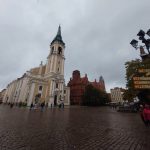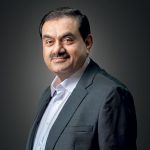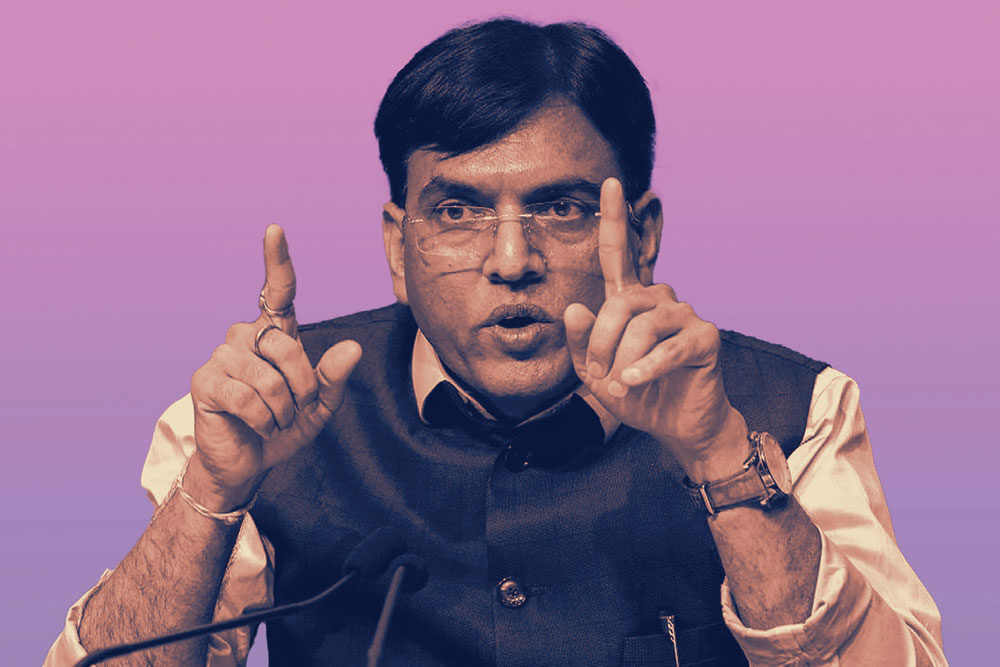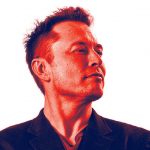Dr Diana Johnstone: ‘NATO not a defensive alliance, but global police taking orders from US’
Dr Diana Johnstone, an expert on European politics, in conversation with Ullekh NP
/wp-content/uploads/2022/03/diana-johnstone-open.jpg)
Dr Diana Johnstone
The world has often looked up to Dr Diana Johnstone, now 87, for the truth behind American and NATO strategies. Born and raised in Minnesota, US, the writer has lived across the world and tracked the motives of political elites and organisations that serve their interests. The outcome has been numerous incisive essays and gripping books that reveal untold stories of intrigue, cruelty and ambitions of the powerful people who want to preside over the destinies of the majority. She has courted controversies and still struck a chord among a large section of people who want to know more beyond daily news reports and stories. For a woman who in her prime faced the wrath of American authorities in protesting against the Vietnam war, she was censored by some publishers after she came out with the 2003 book, Fools’ Crusade: Yugoslavia, NATO, and Western Delusions. She had made a name earlier on with works that include The Politics of Euromissiles: Europe’s Role in America’s World. Johnstone, who has also authored a book on Hillary Clinton titled Queen of Chaos (2015), is now back in the limelight thanks to her latest one, Circle in the Darkness: Memoirs of a World Watcher.
An expert on European politics and Western foreign policy, she recently called the US foreign policy a “cruel sport”. Johnstone, an alumnus of University of Minnesota, spoke to Open about the ongoing war in Ukraine and the behind-the-scenes stories of betrayal and machinations.
In the Western media, the Ukraine-Russia war is seen as a mindless invasion by Putin (against the wishes of the majority of Russian people) on a sovereign state. How do you analyse this viewpoint/propaganda?
This is a continuation of the way Western media have portrayed Putin for years before he invaded Ukraine. Now they are triumphant because Putin is really doing what they said he would do. Of course, the two causes of the invasion – the plight of Eastern Ukrainians and the ongoing encirclement of Russia by NATO – have been ignored or downplayed by Western media as insignificant since the US-backed overthrow of the elected Ukrainian government in 2014.
What do you think are Putin’s concerns that drove him to take this military measure? Is the encirclement of Russia by NATO argument a sufficient enough reason for this move?
From all he has said, it is the encirclement of Russia by NATO including Ukraine that moved him to take this measure. Ukraine is not simply a neighbouring country. Much of the country is historically and organically part of Russia. Putin is very sensitive to this relationship. The United States’ insistence that Ukraine “has a right” – indeed that it must – join a military alliance openly hostile to Russia is a provocation that has unfortunately produced its predictable effect. I say predictable because top Russia experts in the United States warned against NATO expansion after the collapse of the Soviet Union, foreseeing that it would have such results.
Personally, although I avoid predictions in a world of surprises, I did not expect this Russian invasion, for the simple reason that I did not believe it to be in Russia’s interest. The NATO encirclement is relentlessly ongoing, and in Moscow the question was, when do we act to stop it?
What do you think are Ukraine’s main objectives for seeking a NATO membership? Was it different from the interests of, for instance, Romania or Poland in securing a NATO membership?
NATO membership has served as a stepping stone to membership in the European Union, and that has undoubtedly been the main motive of Eastern European elites for joining NATO. Many citizens of these countries have been reluctant to join NATO, while eager to be part of the EU, which promises economic benefits as well as the feeling of “belonging to the West”.
The case of Ukraine is special. “Belonging to the West” is the aggressive ambition of nationalists in the West of the country, for whom membership in NATO and the EU would confirm their ideological denial of the historic kinship with Russia. The United States has actively promoted these aims, first in supporting the so-called “Orange Revolution” of 2004 and then the coup in 2014 which gave power in Kiev to the Western nationalists.
In contrast to Poland or Romania, the desire of Westernised elites in Ukraine to join NATO has had a strong domestic political significance: aggressive defiance of the large part of the population that still relates to Russia. This has been primarily an identity politics issue. Even worse, there seem to exist in Ukraine a small minority of anti-Russia fanatics who would not object to participating in NATO military action against Russia.
In the popular media narrative, Russia has lost the propaganda in this war. What exactly do you think are Russia’s key motives in launching an attack on its western neighbour, especially in the Donbas and Black Sea regions?
To my regret, military logic has evidently prevailed over international political concerns and diplomacy. It appears that the attacks along the Black Sea coast have been provoked by increasingly aggressive movements by NATO warships in the Black Sea itself. These provocative naval movements by British and other NATO warships in the Black Sea may have contributed to the Russian decision to secure nearby Ukrainian Black Sea ports before they are transformed into de facto NATO outposts.
In popular media narrative, Russia had lost the propaganda war before the real war started. This is due mainly to the constant demonisation of Putin. But it is also due to the fact that Western public opinion remains almost totally unaware of these NATO naval threats in the Black Sea.
Putin is now accused of ‘triggering’ rearmament by Germany and greater unity among the Western countries, including France and others who have continuously raised their defence budgets over time. Again, he is being charged with giving NATO a reason to consolidate and expand further. What exactly is the truth behind Germany’s and NATO’s designs? How genuine are the complaints that Putin (meaning Russia in the Western parlance) has violated the Minsk agreement of 2015?
Yes, now Putin is being accused of triggering the very things that caused him to invade Ukraine: NATO consolidation and expansion, including German militarisation. I doubt that he foresaw the extent to which the Russia aggression has unified the Europeans. The unanimity of condemnation, to the point of banning Russian media, aviation, artists, scientific cooperation and even cats, is astonishing. There is a genuine hysteria of condemnation of everything Russian.
In recent months, there was already a notable trend in parts of the German establishment to join a US-led military buildup targeting Russia. This would be especially disturbing to Russians. Before February 22, there were some growing if largely unspoken differences between France and Germany. Leading opposition candidates in France’s April Presidential election tended to favour improved relations with Russia. Now they are being condemned as “Putin-lovers”.
The UN-endorsed Minsk agreements were supposed to settle the problem of secessionist Lugansk and Donetsk by the end of 2015. The so-called “Normandy format” implied that Germany and France would put pressure on the pro-Western Kiev government to apply them: by taking measures to grant autonomy to the rebellious provinces. French diplomats were still trying to promote the Minsk accords on the eve of the Russian invasion, but seven years had passed and Ukrainian leaders were still obstinately refusing to negotiate with the Eastern secessionists as required, and instead were stepping up military measures and attacks on the long-suffering people of Lugansk and Donetsk. Putin evidently decided that Russia had waited long enough, or too long. It was up to Kiev to take steps to carry out the Minsk agreement. Kiev refused. So, for all these years there has been no such agreement for Russia to violate. But Putin is blamed for everything.
Did the US and other NATO countries have a grand strategy for Ukraine ever since 2014? If yes, what is that?
Surely the United States did not go to all the trouble of supporting the overthrow of the elected president of Ukraine in 2014 without having something in mind. Some of what they had in mind is perfectly clear: defeat and marginalise the half of the country that had voted for the overthrown President, Viktor Yanukovych, that is, roughly the eastern and southern parts of Ukraine, the parts that were attached to Ukraine by Lenin in 1922 and are largely Russian-speaking. With the Western nationalists in power, the next step was to bring Ukraine into NATO. This would eventually enable NATO – meaning essentially the US – to take over Russia’s main naval base at Sevastopol in Crimea. The referendum returning Crimea to Russia forestalled this dire threat to Russian security, but enabled the West to orchestrate a propaganda campaign accusing Putin of plotting to invade his neighbours. All that is obvious.
What comes next is less blatant. By adamantly refusing to listen to Putin’s complaints about NATO expansion, by rejecting any mutual security arrangements, the United States actually goaded Putin into taking further measures to prevent Ukraine from being transformed into a forward NATO base aimed against Russia. That has happened.
Is the United States actually planning an attack on Russia? This seems unlikely. Rather, the immediate strategy is apparently to exploit the divisions of Ukraine to create a second “iron curtain” separating Russia from US-dominated Europe. And in the long run, the American strategy hopes that isolating Russia will lead to the fall of Putin and the takeover by puppets like Yeltsin who will enable Western corporations to gain control of Russia’s natural resources.
You have said in a recent essay that “US President Joe Biden and his Deep State never wanted a peaceful solution in Ukraine, because troubled Ukraine acts as a permanent barrier between Russia and Western Europe, ensuring US control over the latter”. Could you elaborate?
The US opposition to the Nord Stream 2 pipeline, built to transfer Russian natural gas to Germany and from there to the rest of Europe, gives the game away. This pipeline is a perfectly normal, sensible business deal. But it has been constantly denounced as a dangerous way to enable Russia to exert influence over Germany. The reality is that ever since 1945, the United States has exerted overwhelming influence over Germany (first the West and now the whole) and does not want to risk losing it. Ukraine is now cited as the reason that Germany must renounce Russian gas and instead purchase much more expensive gas from the United States. Ukraine is now being used as the pretext for Europe to renounce all relations with Russia and confirm its total dependency on the United States.
How divisive do you think are the policies of NATO?
Alas, the policies of NATO are so divisive that they are dividing the entire world. The United States and other NATO leaders speak endlessly about “our values” and how they are defending these rather vaguely defined values throughout the world. This NATO is no longer the North Atlantic Treaty Organization founded ostensibly to defend Western Europe (and rearm Germany) against a theoretical (but quite unreal) “Soviet threat”. When the imaginary Soviet threat evaporated, NATO, instead of dissolving, used the tragic civil wars in Yugoslavia to reinvent itself, no longer as a defensive alliance but as a “humanitarian” police force by bombing Yugoslavia in 1999. This war was contrary to international law and served to violate the territorial integrity of Yugoslavia by detaching the province of Kosovo from Serbia. This illegal war did not arouse indignation in the West: it was applauded and praised. NATO went on to take part in the destruction of Libya and the pointless twenty-year war in Afghanistan. There were no sanctions against the aggressors.
US and NATO leaders now proclaim the new ideological division of the world, between “democratic” and “autocratic”, and make it clear that military force is legitimate for democracies to use against “autocracies”. This means that NATO can be a potential threat to any nation which Western ideologues consider “autocratic”. Since the 1999 Kosovo war, NATO is clearly no longer a defensive alliance, but a self-ordained global police force based on taking orders from the United States, acting in the interests of those who hold power in Washington. The rest of the world needs to understand this clearly.

/wp-content/uploads/2025/06/Cover-OpenMinds2025.jpg)












More Columns
'Gaza: Doctors Under Attack' lifts the veil on crimes against humanity Ullekh NP
Armed with ILO data, India will seek inclusion of social security in FTAs Rajeev Deshpande
Elon Musk Returns to Rebellion Mode Against Trump Open